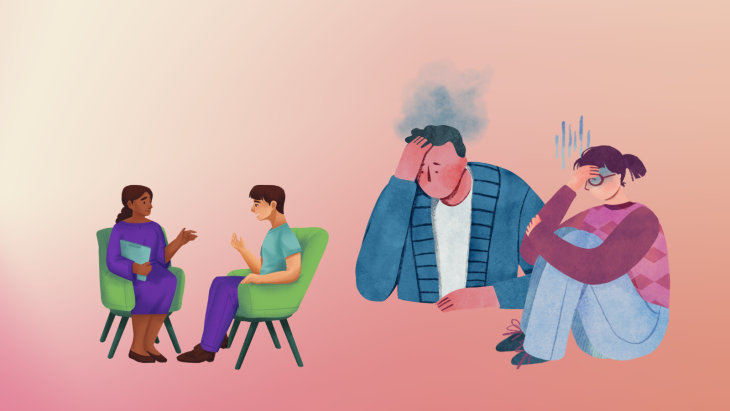Recent Posts
Most Popular
Mental health concerns. When is the right time to see someone for help?

You are not alone.
Our mental health, composed of a human’s emotions, thoughts and feelings, may become poor at different seasons or life circumstances, and it is just a part of life. On the other hand, when one has mental illness, it is also possible to still gain back and maintain wellbeing. Mental struggles and mental illness can affect us, and yet in both situations, a positive mental health can be achieved.
In fact, in 2021, the National Alliance on Mental Illness found that 2 in 10 adults in the US (57.8 million) have experienced any form of mental illness, and in the same year, almost half of those with mental illness received some form of treatment.
Why is it important to get treatment for mental health problems?
Depression, one of the most common mental illnesses in the US, puts a person at a higher risk for serious heart and metabolic diseases.
When left untreated, mental illnesses and emotional health problems worsen and affect family life resulting in lost hours at work.
Episodes of uncontrolled behavior due to mental illness are one of the leading causes of hospitalization in the US among young people.
When may professional help for mental health be needed?
Seeking professional help for mental health and emotional health struggles is crucial especially when our patterns of thinking and behaving are causing undesirable effects on our:
- Ability to take care or and maintain important relationship
- Behavior in social situations
- Performance at school or at work
- Learn new things and function as expected for our level of development
- Perform activities of daily living
In addition, a trained mental health professional will be able to assess signs and symptoms that are unique to your situation. They have the professional skills to identify:
- Changes in your behavior and attitude, and patterns of thinking
- Changes in your sleeping and eating patterns
- Patterns of problem-solving
- Anxiety and check if anxiety has become excessive
- Abuse of substances
- Mood swings that have become extreme
- Anger, violence, and hostility in your behavior that have become harmful to you and others
Who are mental health professionals?
Mental health professionals have knowledge, many hours of training and developed skills about human behavior. They can be psychologists, clinical social workers, and mental health therapists, and many more.
They use The Diagnostic and Statistical Manual of Mental Disorders (DSM) or the International Classification of Diseases (ICD) in order to make a diagnosis after a complete assessment of your condition.
They take your medical history, do physical assessment, and ask you questions that surround your struggles.
It is possible that we delay finding professional help although we are already worried about our mental health, or a concerned family member or friend recommended us to seek help. Some reasons include shame or fear.
But you do not have to wait long. A consultation with a trusted mental health professional may be able to give you the support or the appropriate treatment you need such as counseling, medication, or therapy.
Mental health is an aspect of life that brings all of us together. It is what makes us who we are. It is also an area where every one of us still learns to achieve balance and health. Our goal is well-being- achieve comfort, health, and happiness, and it starts with being proactive with seeking mental health help when needed.
Do you need someone to talk to? Mental health professionals such as therapists, counselors, or psychologists might be able to help you make sense of thoughts, feelings or behaviors. Contact one!








Comments